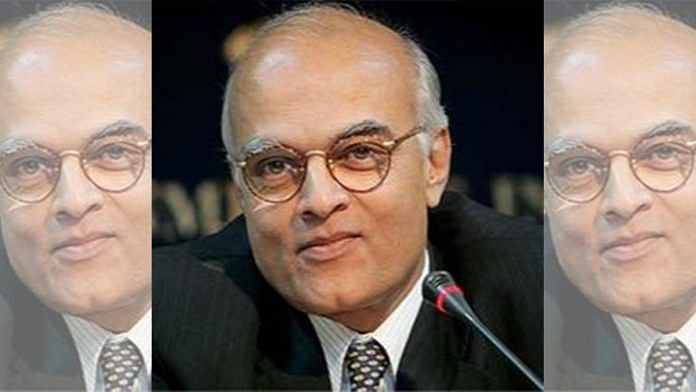
New Delhi: The India-China relationship will be marked by “hard times” over the next five to 10 years, former national security advisor (NSA) Shivshankar Menon said Tuesday as he discussed his new book during an online event hosted by Harvard Kennedy School.
India now faces a China that is “in a hurry” to seize a moment of opportunity outlined in its global ambitions, Menon said during the event. “Xi Jinping sees China as central to Asia.”
However, he said India-China tensions won’t be permanent. “The fact is China is part of our neighborhood and on our periphery… it is never going to be a purely competitive adversarial relationship and it also never was a purely cooperative one. It swings between these two,” he explained.
India and China have been working to ease tensions along the Line of Actual Control (LAC) in eastern Ladakh since the Galwan border clash in June 2020. Last week, both sides held the 11th round of corp commander meeting at the Chushul-Mondo border.
Asked about a “thaw” in India-Pakistan relations and Pakistan Army Chief Javed Qamar Bajwa’s remarks that India and Pakistan should “bury the past”, Menon called it “a fishing expedition”. He said Islamabad is motivated to know how much pressure India is under after what happened on the border with China.
Menon served as the NSA under former prime minister Manmohan Singh. Prior to that, he was India’s foreign secretary. Currently, he is a visiting professor of International Relations at Ashoka University. His new book, India and Asian Geopolitics: The Past, Present, is out now.
Quad has evolved beyond just a security dialogue
Asked about the formation of the Quadrilateral Security Dialogue, or Quad, Menon observed that it has evolved beyond just a security dialogue. “As long as it was a security dialogue, it had a limited purpose. It ran the risk of when any one of the members pulled out or saw those security issues differently, the Quad itself would collapse. That’s what happened to it in 2008,” he said.
Initiated in 2007, the Quad is a strategic and security framework under the Indo-Pacific construct between the US, Japan, Australia and India. The Quad countries held their first summit-level meeting virtually on 12 March.
“Quad is not a closed shop. It can’t deal with the Indo-Pacific unless it involves other people in the Indo-Pacific,” said Menon. This does not mean the Quad must admit new members, but rather find new partners to work with, he added. The group should also be a “catalyst” for economically integrating Europe into the Southeast Asia region, he said.
On FONOP row
Commenting on the US Navy’s Freedom of Navigation Operation (FONOP) in India’s exclusive economic zone last week, which caused a row in India, Menon remarked: “We’ve just had a reminder that we [India and US] have slightly different interpretations of freedom and navigation and the law of the sea.”
He said there are other ways to enhance maritime security, adding: “I’m not sure that FONOPs is the way to go.”
High expectations for India-US relationship
Observing that the India-US relations are at an all-time peak, Menon said expectations are now high for the two countries. They must find “new directions” in this relationship given that the world is changing considerably, he said.
India and the US can do more on the bilateral front in terms of students and education, agriculture, technology and such areas that affect the lives of ordinary people, he said.
Asked about the role of “internal cohesion” in the US and India, Menon said democracy is “still a work in progress” in India. “The social contract, the fundamental political contract itself, is in the process of being renegotiated [in India],” he said.
Menon suggested India find ways to reconcile its interests with its democratic values, which “don’t always work in the same direction”. So far, India has tended to choose interests over values, he said, adding that US President Joe Biden, however, is pushing the world to rethink this.
Subscribe to our channels on YouTube & Telegram
Why news media is in crisis & How you can fix it
India needs free, fair, non-hyphenated and questioning journalism even more as it faces multiple crises.
But the news media is in a crisis of its own. There have been brutal layoffs and pay-cuts. The best of journalism is shrinking, yielding to crude prime-time spectacle.
ThePrint has the finest young reporters, columnists and editors working for it. Sustaining journalism of this quality needs smart and thinking people like you to pay for it. Whether you live in India or overseas, you can do it here.